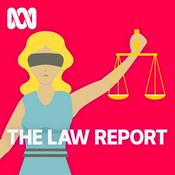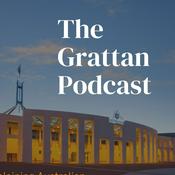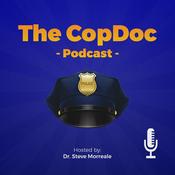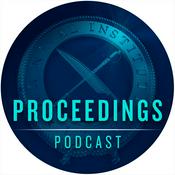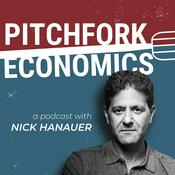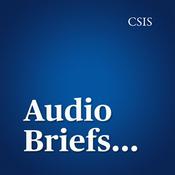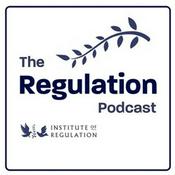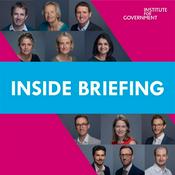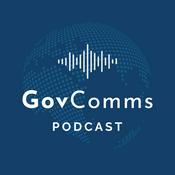12 episodes

How telecommunications empowered Caribbean nationals and birthed a diaspora with Denis O’Brien, Founder and Chairman, Digicel Group.
12/10/2020 | 32 mins.
A new era in Caribbean telecommunications has been ushered in by liberalization in the late 1990s and early 2000s marking the emergence of many Caribbean countries from an era of monopoly control over the networks, broadband Internet, and cable television. Mobile phones have become more ubiquitous than toilets, and have sparked social and economic transformation, and given risen to robust diaspora communities. Here to discuss Caribbean telecommunications and beyond cel technology, is Denis O’Brien, Founder and Chairman of Digicel Group, a full-service communications and entertainment company operating in the Caribbean, Central American and Asia Pacific.

Caribbean Citizen-centric development and new economic frontiers: A conversation with the World Bank’s Director of the Caribbean, Tahseen Sayed
28/09/2020 | 32 mins.
The blue economy and digital technology are emerging as strong pathways for economic and sustainable growth in the Caribbean. Both hold promise to diversify the economy, create jobs, and leapfrog development in the region. The World Bank is betting on this strategy and has invested millions in novel digital projects and blue economy programs. Tahseen Sayed, Director of the Caribbean at the World Bank, is responsible for maintaining a solid partnership with the region to address its development and financial challenges. She has over 20 years of operational and leadership experience at the Bank serving also in Europe, and in the Central and South Asia Regions. She holds a Master's degree in Law and Diplomacy specializing in Development Studies from Tufts University Fletcher School of Law and Diplomacy, USA, and she joins me to talk about these new frontiers.

Cayman Islands: Leading the Caribbean in the financial and tech markets...A conversation with Charlie Kirkconnell, CEO, Cayman Enterprise City
14/09/2020 | 34 mins.
Nestled in the Caribbean Sea, are three islands known as the Cayman Islands: Grand Cayman, Cayman Brac, and Little Cayman. A global financial center, Grand Cayman, the largest of the three, is approximately 76 square miles, and home to about 50,000 residents. These islands pack a financial punch and international attraction that set them apart from the rest of the region. Joining me to talk about Cayman’s place in global finance and foreign investment are Charlie Kirkconnell, CEO, Cayman Enterprise City. Mr. Kirkconnell is a Caymanian attorney and well-respected businessman. Prior to joining Cayman Enterprise City (CEC), he was an Associate at a leading Cayman Islands law firm that focuses on corporate and international finance law, with an emphasis on investment funds, private equity, structured products and capital markets. He earned his law degree with honors from the University of Liverpool.

Caribbean Rule of Law and regulatory framework: An alternative for foreign investors during COVID disruption and beyond with Dustin Delany, Esq., Managing Partner, Dentons Caribbean
28/08/2020 | 37 mins.
At a time when the COVID-19 pandemic is testing the economic resiliency of the Caribbean, many are reimagining business and investment in the region. Caribbean economies are being creative in their offerings to foreign investors and compensating for the massive losses of tourism revenues. Foreign investors, for their part, are taking a second look at the region’s financial centers, corporate infrastructure, tax-neutrality, and its political and economic stability. Dentons, the world’s largest law practice, has expanded its Caribbean operations, opening up its latest offices in the British Virgin Islands and St. Lucia. Here to help us understand the business attraction to this collection of 26 small independent nation-states with a population of 45 million, is Dustin Delany, managing partner for Dentons Caribbean operations.

Caribbean shipping: A key link in the global supply chain, a conversation with Juan Carlos Croston, President of the Caribbean Shipping Association
10/08/2020 | 28 mins.
Among the first news about the COVID-19 pandemic involved the shipping industry. Reports about passengers stranded at sea on cruise lines, cargo and cruise ships alike not being allowed to dock out of fear of infected passengers and crew members involved liners associated with the Caribbean, put Caribbean governments on their heels from a health, economic and branding perspective. My conversation today is with Juan Carlos Croston, President of the Caribbean Shipping Association, to help us understand if we should be worried that our imported products that make their way to our tables through the Caribbean Sea are in jeopardy of missing the boat. He will also provide some insight into the cruise industry, which is the fastest growing segment of the global tourism market, and struggling to come back from the devastating impact of the pandemic.
More Government podcasts
Trending Government podcasts
About Diplomatically Speaking - The Podcast
Listen to Diplomatically Speaking - The Podcast, The Lawfare Podcast and many other podcasts from around the world with the radio.net app

Get the free radio.net app
- Stations and podcasts to bookmark
- Stream via Wi-Fi or Bluetooth
- Supports Carplay & Android Auto
- Many other app features
Get the free radio.net app
- Stations and podcasts to bookmark
- Stream via Wi-Fi or Bluetooth
- Supports Carplay & Android Auto
- Many other app features


Diplomatically Speaking - The Podcast
download the app,
start listening.







